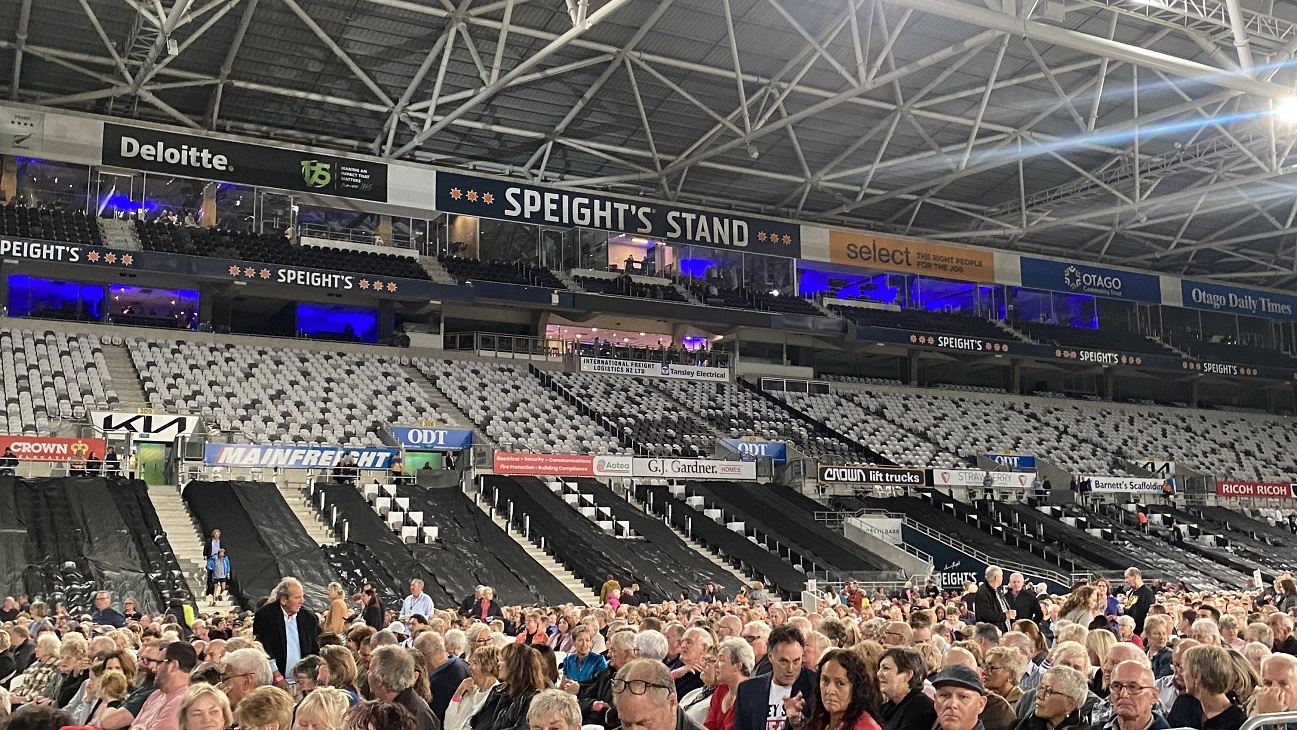
Dunedin Venues chief executive Terry Davies estimated fewer than 10,000 people were in attendance at Forsyth Barr Stadium on Wednesday night.
This was a "significant difference" from Sir Rod’s previous foray in the South which attracted 25,000 fans.
"We would have loved to see 20,000 plus ... but it wasn’t the case.
"Unfortunately Rod last night deserved better," Mr Davies said.
He could not point to any reason for the lower-than-usual turnout, but University of Otago Associate Professor of economics Trent Smith said the smaller attendance was likely a result of the effects of inflation on people’s income.
"When the price of everything goes up and your income doesn’t, it’s more or less like your income has fallen," Prof Smith said.
Entertainment expenses such as concerts were "the first thing you’d expect to drop when people are faced with inflation".
Prof Smith said another aspect of inflation was the supply chain problems that the whole world faced.
This combined with the pandemic put a strain on the supply of labour in the hospitality sector.
"Suddenly the worst job you could have was waiting tables in a restaurant. It’s hard to find people to work in your restaurant.
"It also makes people less willing to go to an experience where you’re exposed to all these people."
The hospitality sector was also being hit by the cost of living crisis.
Woof! bar co-director Dudley Benson said events such as Wednesday’s concert were "crucial" for bringing more people into the city centre.
"It’s vital to all of hospitality that these events are happening," Mr Benson said.
"They have to in order for us to survive."
The bar’s loyal patrons had not been affected but they still found the supply chain costs difficult.

"The rising cost of living is hard because our suppliers have all increased their prices over the last year.
"We try to hold off on our patrons having to take that hit as long as we can."
Hospitality New Zealand branch president Mark Scully said most venues, while reluctant, had been forced to pass on rising costs to consumers.
"It doesn’t matter who you supply, the costs of goods have been going up," Mr Scully said.
"With the OCR and mortgage rates, people are finding costs of living pretty prohibitive.
"The first things people can put on hold is eating out. That is a luxury, really."
He said Dunedin had been lucky with the number of tourists and events available so far.
The rest of the year would be tough, but Dunedin still had good events in store and would start to see tourists again by Christmas.
Mr Davies was still proud of Wednesday night’s show, despite the turnout.
"Every show is different. Some win, some lose and from our perspective, those who attended . . . had a good time."
He did not think the price of tickets played a role in the concert’s attendance.
Despite customers paying for seats in the stands, everyone was moved down to the front pitch area.
When asked why this was, Mr Davies said that having audience members in the stands was "not practical from a delivery or servicing point of view."
"It was delivered in an intimate mode that ensured all who attended had a good experience," he said.
"Unless I’m proven wrong the majority of those who attended last night who were on ground would have enjoyed the experience."







